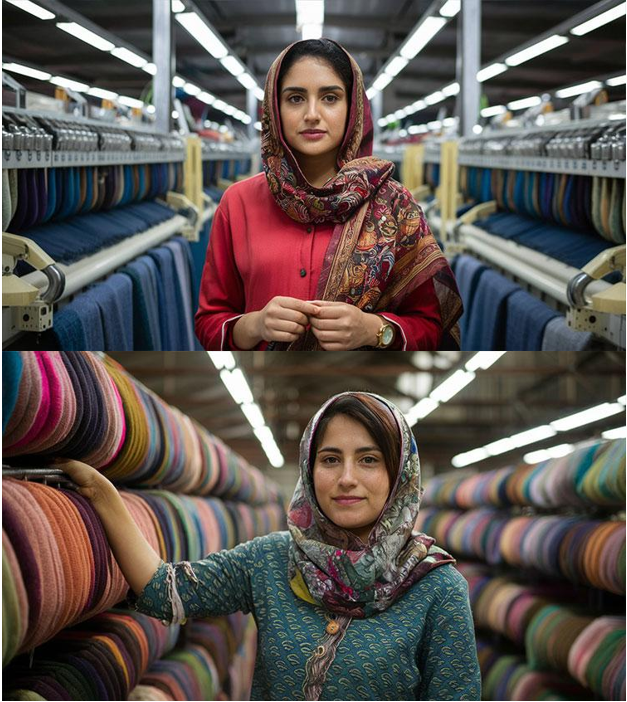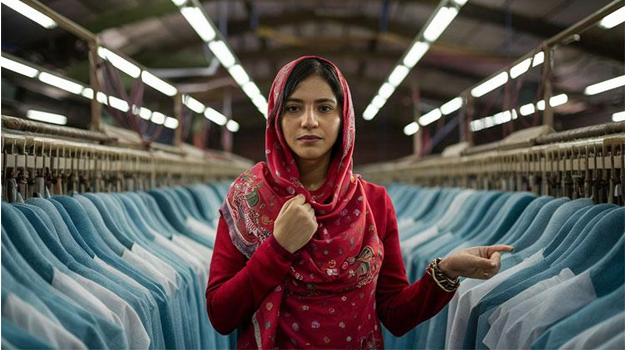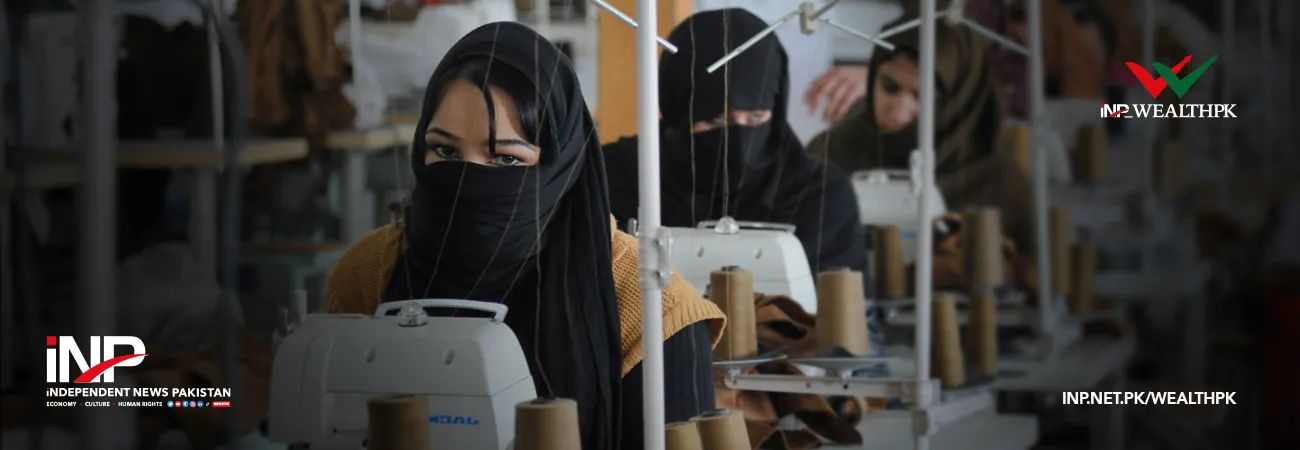INP-WealthPk
Muhammad Saleem
Kausar Bibi works at a garments factory to earn a living for her family, but complains of low wages and a lack of capacity-building opportunities compared to their male counterparts. She is employed as a machine operator and performs the task of stitching multiple garment products. “My job requires cutting-edge stitching methods to avoid faulty products. We have to work under tight deadlines to meet the orders. A number of times, women workers have to work extra hours to ensure consignments are shipped on time,” she told WealthPK. She, however, complained that the salaries of women workers were not on par with those of their male counterparts. “This discrimination is taking its toll on women workers, who are leaving no stone unturned to ensure timely completion of the consignments.” She asserted that gender inequality is a significant hurdle in the textile sector. She said women workers are keen to learn new skills, but the factory owners prefer training programmes for the male workers.
“If women workers are contributing equally to the sector, why is this not recognised by their owners? Women’s voices and rights are being suppressed by factory owners, while male workers often pressure them to get their rights,” she added. However, Sadaqat Ali, a textile exporter, praised women workers. Talking to WealthPK, he said that women are dedicated and hardworking. “They are taking the textile sector to the next level and strengthening the national economy.” He said that a number of times women workers pulled their weight to meet the foreign orders. “They have to do this task during leaves or when we face the shortage of male staff.” Sadaqat said delayed shipment of foreign orders resulted in reputational and financial losses for importers and exporters. “Male labourers tend to go on a strike even for minor issues, but women workforce exhibits a different approach, preferring to focus on its responsibilities.”
“Sensing the active participation of women workers, we need to introduce special incentives and training programmes for them so that they can meet the emerging challenges of the fashion industry,” Sadaqat suggested. Dr Muhammad Ashraf, a teacher at a state-run university, said the textile sector is the mainstay of the national economy and the role of women workers in this sector is undeniable. He said women workers are progressing in every sphere of life and their contribution to the textile sector is marvelous. “They are shouldering labour-intensive roles while nurturing their families efficiently. However, it’s a red flag that they are not being offered top-tier managerial positions at factories.” He said the skyrocketing prices of commodities and utility bills are forcing women to join the textile sector, yet this sector is unable to absorb them due to unfavourable conditions. Ashraf said women workers are facing a myriad of challenges like low wages, extra working hours, and harassment.
“In spite of all this, women workers are tough as nails, keeping their heads above water in the textile industry. Their hard work stories are inspiring, though they are unable to bargain their wages due to the absence of a women workers’ union,” he said. Ashraf stressed the importance of forming women workers’ unions to safeguard their legitimate rights and shield them from exploitation. He said that most women workers prefer to remain tight-lipped over harassment issues for fear of losing their jobs. Sadaqat, the textile exporter, said more jobs for women workers will spring up in the textile sector in future. “The fashion industry is taking a new shape in the wake of the Artificial Intelligence revolution, changing the patterns of designing, photography, stitching, dying, packing and other departments of the textile sector.” “We have to tackle these changes with a skilled workforce. Women workers will continue to be high in demand in the days to come,” he said.


Credit: INP-WealthPk













